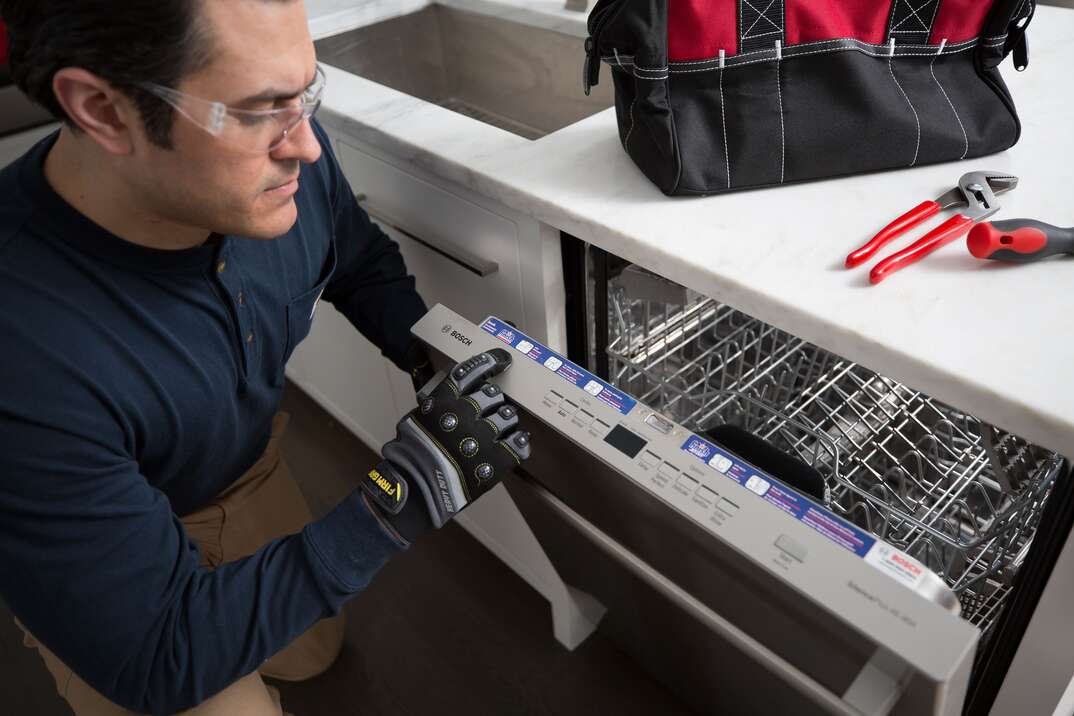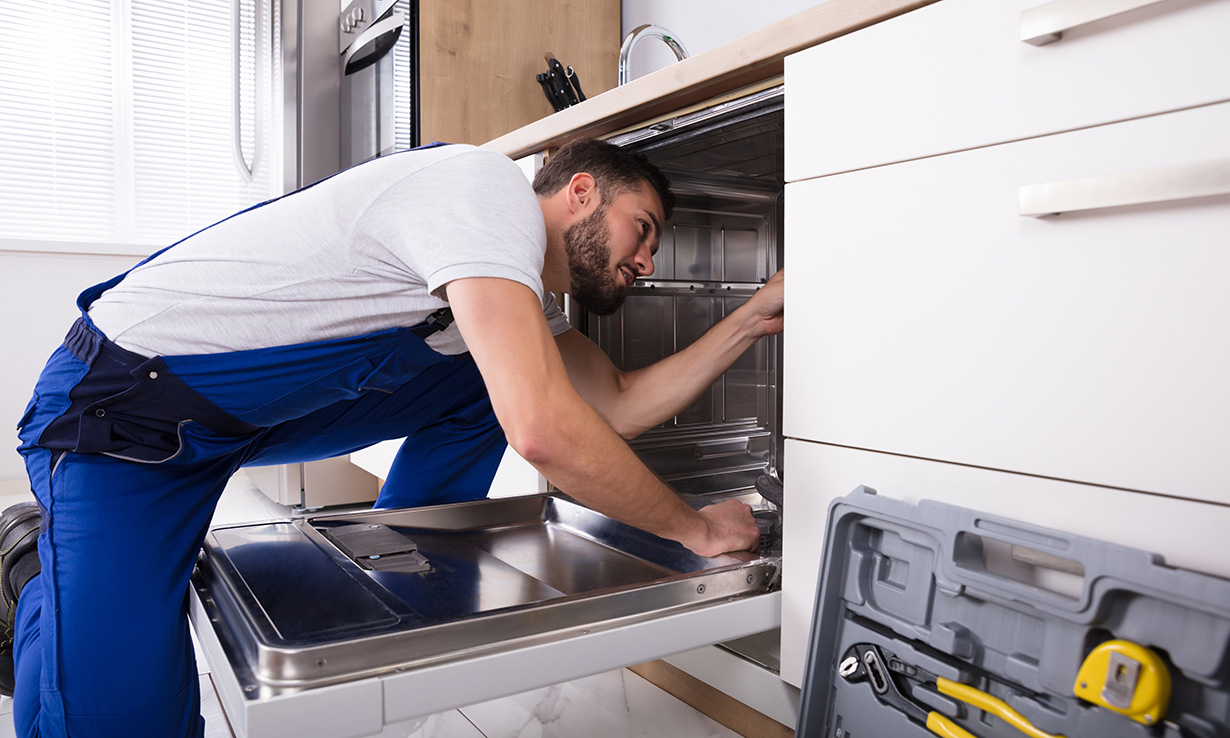Just how do you really feel in relation to Common Dishwasher Problems?

Having your dishwasher breakdown or malfunction can be a big deal and also cause some pain in your home. Dishwashing machines are makers that we utilize to tidy recipes and also flatwares automatically to save us the tension of manually doing it.
Like every other device that relieves human effort, dishwashing machines can break down as well as establish some fault eventually in time. There are numerous mistakes your dishwashing machine might establish, as well as while a few of them can be resolved by replacing some parts or fixing them, various other extra extreme issues will certainly call for that you obtain a brand-new dishwashing machine.
This post will certainly determine a few common faults your dishwasher could create to prevent its total efficiency as well as exactly how these faults can be addressed.
Usual Mistakes
Typical dishwashing machine faults could vary from small to significant ones. Depending upon the extent, you will certainly either require the solutions of expert plumbings to repair or replace it.
Several of one of the most typical faults include:
Dripping Dishwashing machine
This is most likely the most everyday dish washer issue, and the good news is that it is very easy to recognize. Leaks occur as a result of a number of reasons, and also the leaks can make a mess of your cooking area. Typical causes of dish washer leakages include;
Bad-Smelling Dish washer
This is one more common dish washer problem, and also it is primarily brought on by food debris or oil lingering in the equipment. In this case, try to find these particles, take them out as well as do the dishes with no dishes inside the maker. Clean the filter completely. That will certainly help remove the bad odor. Ensure that you eliminate every food fragment from your dishes prior to transferring it to the maker in the future.
Inability to Drain pipes
Sometimes you may see a large quantity of water left in your tub after a laundry. That is possibly a drainage issue. You can either examine the drain tube for damages or obstructions. When doubtful, get in touch with a specialist to have it examined and taken care of.
Does unclean correctly
If your recipes and cutleries appear of the dish washer and still look filthy or dirty, your spray arms may be an issue. In most cases, the spray arms can obtain clogged, and it will certainly call for a quick clean or a substitute to function effectively once again.
Final thought
Several of these common dishwashing machine mistakes can be dealt with easily at home, however in many cases, the mistakes could be substantial and may need the focus of specialists. If you live in Rochester, Syracuse, and other parts of America, let the experts appropriately detect what could be incorrect with your dishwasher and proffer a service.
We likewise mount dish washers if you simply bought a new one or intend to replace your own. With our several years of experience in the market, we make certain to offer you the very best feasible solutions.
8 Most Common Dishwasher Problems & How to Fix Them
My Dishwasher Isn't Draining
If your dishwasher isn't draining properly, you may be having an issue with your dishwasher's drainage system. This can be caused by a variety of issues:
Clogged drain: The dishwasher's drain may be clogged with food particles or other debris. Malfunctioning pump: The dishwasher's pump is responsible for moving water through the system and out of the drain. If it's damaged or not working correctly, it could cause a drainage failure. Broken or clogged hose: The dishwasher's drain hose may be broken or clogged, causing water to back up in the system. How to Fix Dishwasher Not Draining
Check the drain for any blockages. A clogged or kinked hose will prevent water from properly draining out of the dishwasher. Use a plunger or a pipe snake to clear any debris that may be blocking the drain. Check the dishwasher's pump for damage or malfunction. Consult the manufacturer's manual or call a professional appliance repair service if you think the pump may be the issue. Check the drain hose for any damage or blockages. The hose should be straight and free of any debris or kinks. Check the drain pump filters for any blockages if the hose is clear, but the dishwasher is still not draining. Some dishwashers have filters that can become clogged with food particles or debris. Cleaning or replacing the filters may help resolve the issue. Run a dishwasher cycle to make sure the water is properly draining out. My Dishwasher Is Leaking
A leaking dishwasher can be frustrating. There are a few possible causes that you can investigate to try and diagnose the issue:
Inspect the dishwasher for any visible signs of damage or wear and tear. Look for cracks or holes in the door and around the rubber seal. Check the hoses and pipes connected to the dishwasher for any signs of leaking. If there is no visible damage, you may hear the sound of water dripping or the sound of the water pump running. This might mean a problem with the water inlet valve or the drain pump. You may also notice a puddle of water on the floor near the dishwasher. This could indicate a blocked drain hose or a faulty drain pump. Finally, check the seals around the door and the door for any signs of damage, wear and tear, or improper installation. If any of these issues are present, they must be fixed immediately to avoid further water damage. How to Fix a Leaky Dishwasher
Identify where the leak is coming from. The most common places for a dishwasher to leak include the door, hoses, and pump. If the leak is coming from the door, the gasket or seal may need to be replaced. If the leak is from the hose or pump, the damaged parts should be replaced with new ones. Finally, check all the connections and make sure they are secure and not leaking How to Fix a Dishwasher That Won't Start
The perfect remedy for a dishwasher that won't start is confirming all the components are in perfect working order and that the wiring is in good condition. Next, inspect the motor and replace it if necessary.
If these steps do not resolve the problem, contact a professional appliance repair technician to diagnose and fix the issue.
Conclusion
Most dishwashers are reliable appliances with a long lifespan. As with all devices, checking your dishwasher regularly will help you quickly identify any issues and ensure that it is running efficiently.
And if you're in the market for a new dishwasher, don't let dishwasher problems ruin your day. Upgrade to a reliable, efficient model today! Check out our full selection of top-quality dishwashers that includes a range of styles and features to suit any budget and household needs.
https://www.coastappliances.ca/blogs/learn/common-dishwasher-problems

As a person who reads on Common Dishwasher Problems, I was thinking sharing that piece of content was sensible. Sharing is good. One never knows, you may very well be helping someone out. Many thanks for going through it.
At This Website